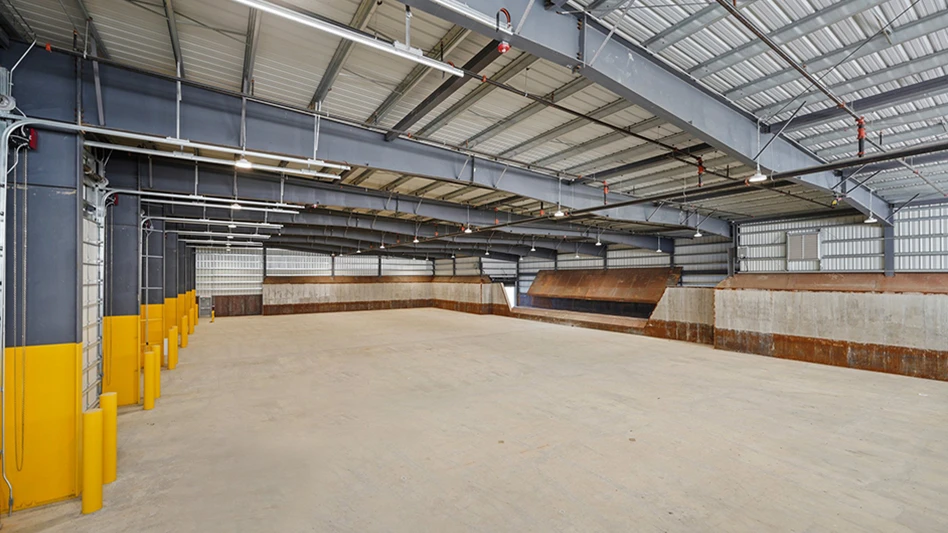
Photo by Brian Taylor.
As if the ongoing homelessness crisis isn’t enough, California is facing another emergency—a recycling crisis—and it’s about to get far worse if a department of state government has its way. California has been a national leader in recycling. Yet recently, recycling facilities for consumer items including bottles, cans and paper have closed. This is due in part to foreign countries’ decision to stop accepting some of California’s recycled material.
Regrettably, it is also the result of dubious decisions made by some of our own government officials here.
You may have seen headlines such as: “Is recycling collapsing in California?” “California faces recycling crisis after China tightens rule,” and “California counties ask governor for help with recycling industry crisis.”
One of the only remaining healthy parts of the California recycling industry is scrap metal recycling.
For more than 50 years, enterprises have safely and efficiently processed millions of tons of scrap metal each year, including more than 1.5 million cars and other vehicles including trucks, trailers, buses and railcars. These recyclers also handle used refrigerators, stoves, washers and dryers.
Under California law, recyclable scrap metal cannot be disposed of in landfills. All the landfills in California combined could not accommodate the huge volume of scrap metal generated in the state.
As environmentalists, we understand the need for regulation. We also represent metal recyclers.
Metal recycling is extensively regulated by federal, state, regional and local authorities, including regional water boards, regional air districts, fire departments and entities that manage and regulate land use.
Now comes the California Department of Toxic Substances Control, a part of the California Environmental Protection Agency. Out of the blue, the department has begun designating metal recycling facilities as “hazardous waste treatment” facilities.
Metal recyclers are part of the solution. And yet they are being treated as if they are part of the problem.
Scrap metal is not a waste at all, let alone a hazardous waste. In fact, scrap metal has never been classified as a hazardous waste under California or federal law, and scrap metal recycling facilities have never been considered hazardous waste treatment facilities.
These metal shredding facilities are not a public nuisance or health threat. Rather, they provide a vital public service, making sure that scrap metal does not end up in our neighborhoods, streets, alleys and vacant lots, but instead is put to beneficial use through a safe process.
California metal shredding facilities have made huge capital investments to make the process even more environmentally friendly and have set state-of-the-art standards for the industry nationwide.
The hazardous waste regime that Department of Toxic Substances Control is pursuing, without a plausible rationale, much less legal authority, is so onerous and uneconomical, that existing metal shredder facilities may be forced to cease operating.
Let’s not kid ourselves: because of their weight and bulk, shipping millions of junk cars and appliances over long distances to out-of-state facilities to be recycled is not practical or economical. This mountain of metal will not become someone else’s headache.
The consequences of this shutdown would be immediately felt by Californians, no matter where they live. Tons of material will accumulate in huge quantities, increasing urban blight, and causing potential threats to health and safety by being abandoned in public places.
Californians would experience the effects resulting from a geometric increase in midnight dumping along roadsides, in alleys or empty fields. This will be a particularly telling problem in low-income neighborhoods, which already endure more than their share of cast-offs.
If there is no viable after-market for the recycling of post-consumer metal items, consumers will face the inevitable inconvenience and cost of not being able to turn in used appliances or have them hauled away by the retailer when new appliances are installed, since most of these items are sold by retailers to metal recyclers.
Californians enthusiastically embrace recycling, because they know that recycling helps reduce pollution and the need for raw materials. Without the infrastructure to support recycling efforts, we will end up being buried in our own junk.
California’s policymakers should be in the business of solving problems, not creating new ones.
The negative impact of unduly burdensome regulations on the recycling of bottles, cans and paper is threatening to end the recycling of consumer items altogether. If the Department of Toxic Substances Control gets its way with metal recyclers, the situation will be even worse.
We served as California Environmental Protection Agency secretaries for a combined 11 years. We value the fundamental purpose of the agency, to protect the environment and health of all Californians.
In fulfilling that purpose, we sought to ensure that boards and departments at the California Environmental Protection Agency did not work at cross purposes to the detriment of the agency’s basic mission. The Department of Toxic Substances Control’s proposal for the scrap-metal recycling industry erodes that principle.
James Strock was the founding secretary of the California Environmental Protection Agency from 1991 to 1997 under Gov. Pete Wilson, and can be reached at jms@servetolead.org. Winston Hickox was CalEPA secretary from 1999 to 2003, under Gov. Gray Davis, and can be reached at whickox@calstrat.com. They wrote this commentary for CalMatters, and it was originally published by CalMatters.
Latest from Waste Today
- ReMA board to consider changes to residential dual-, single-stream MRF specifications
- Miller Environmental Group Inc. appoints CEO
- DPI acquires Concept Plastics Co.
- Laurel Mountain Capital announces investment in 5280 Waste Solutions
- Cielo investor requests annual meeting
- WIH Resource Group celebrates 20th anniversary
- NWRA: NIOSH cuts a step in the wrong direction
- Valicor Environmental services acquires Affordable Waste Management






